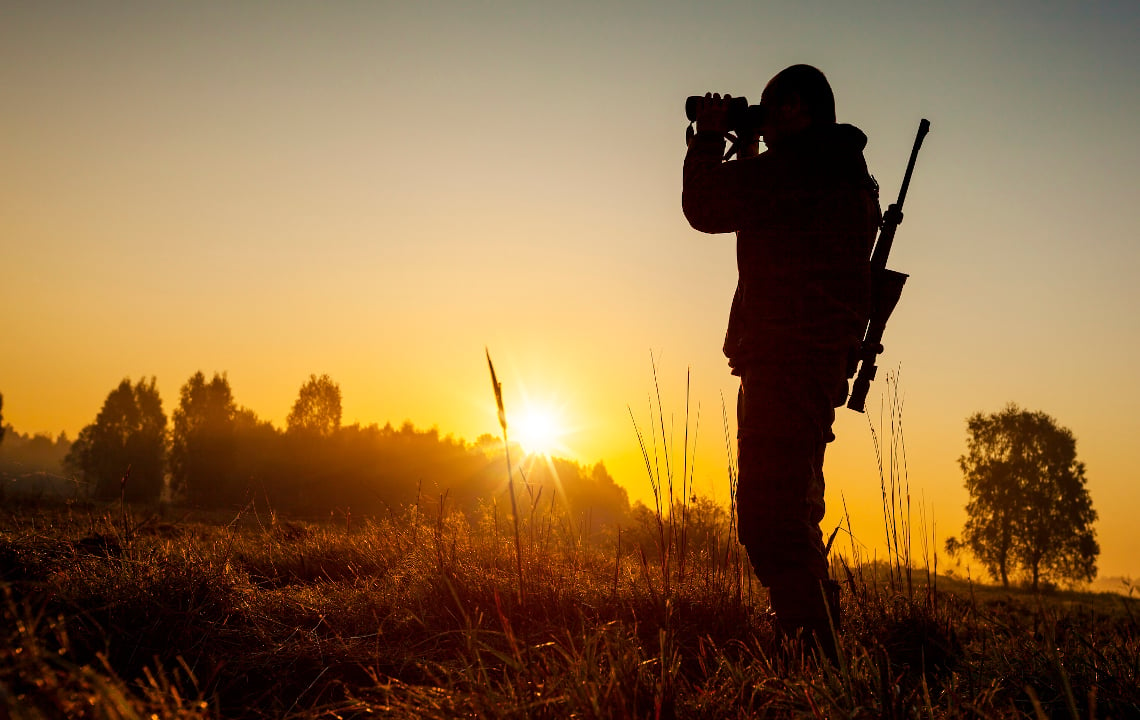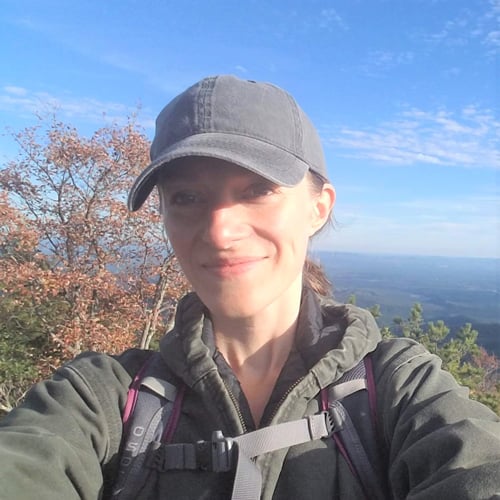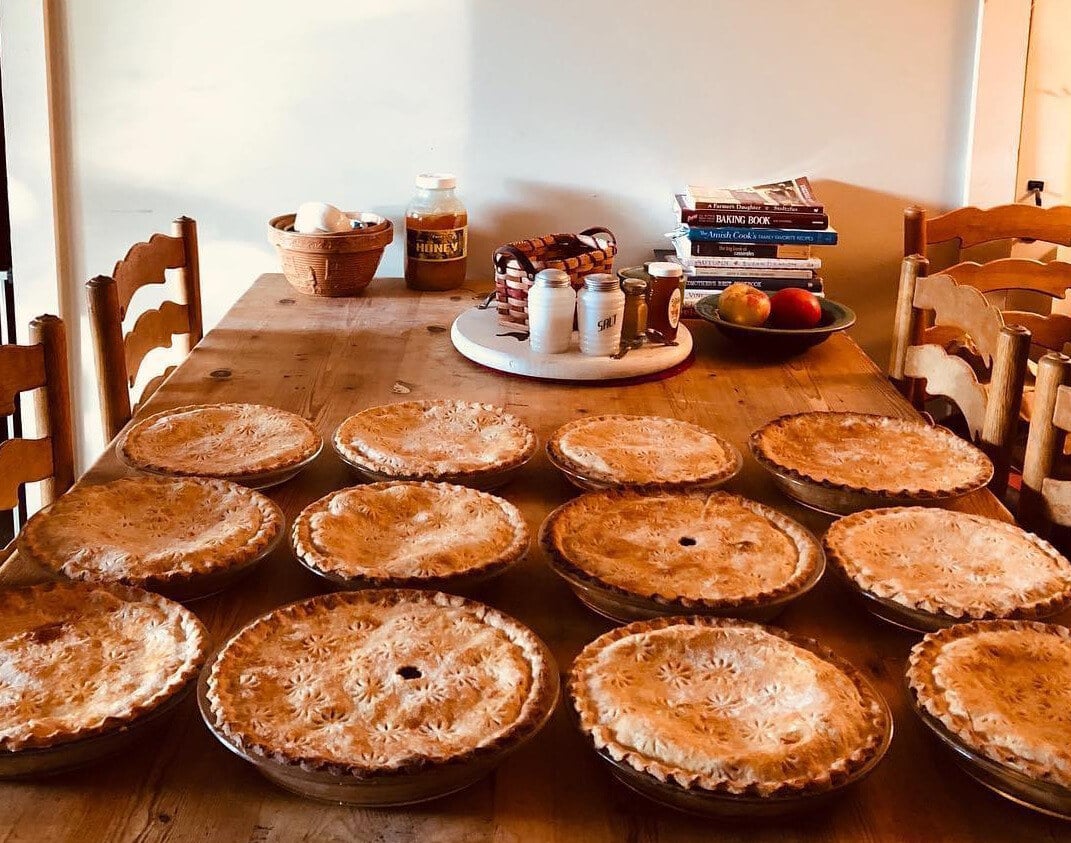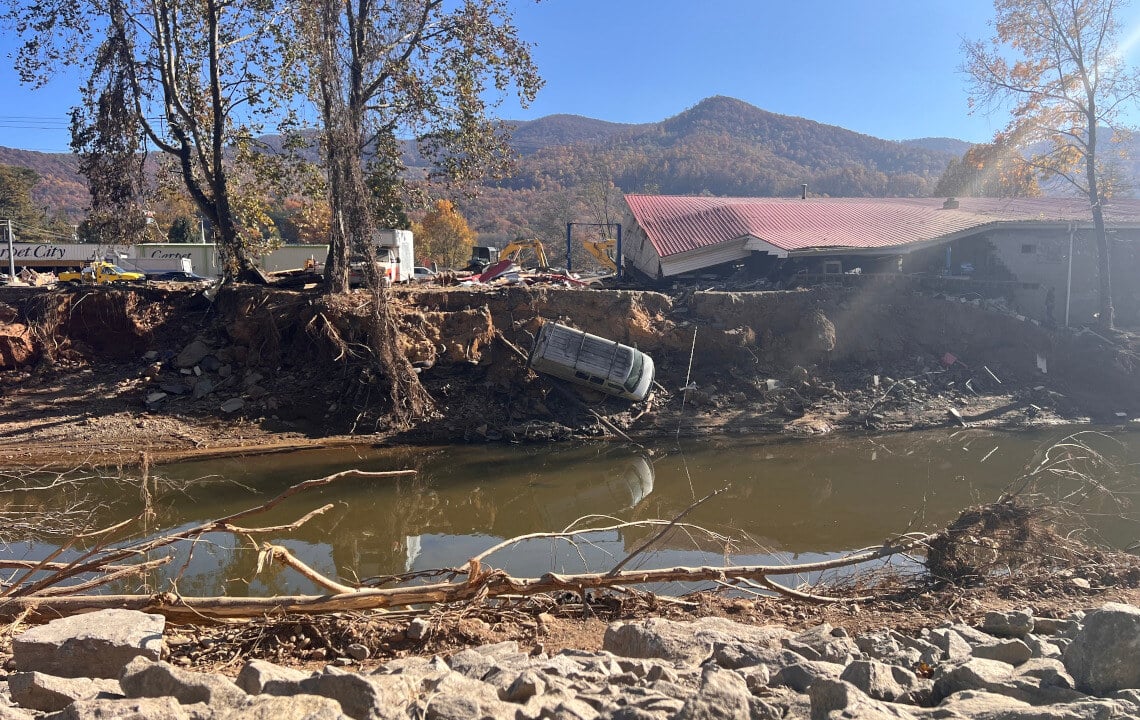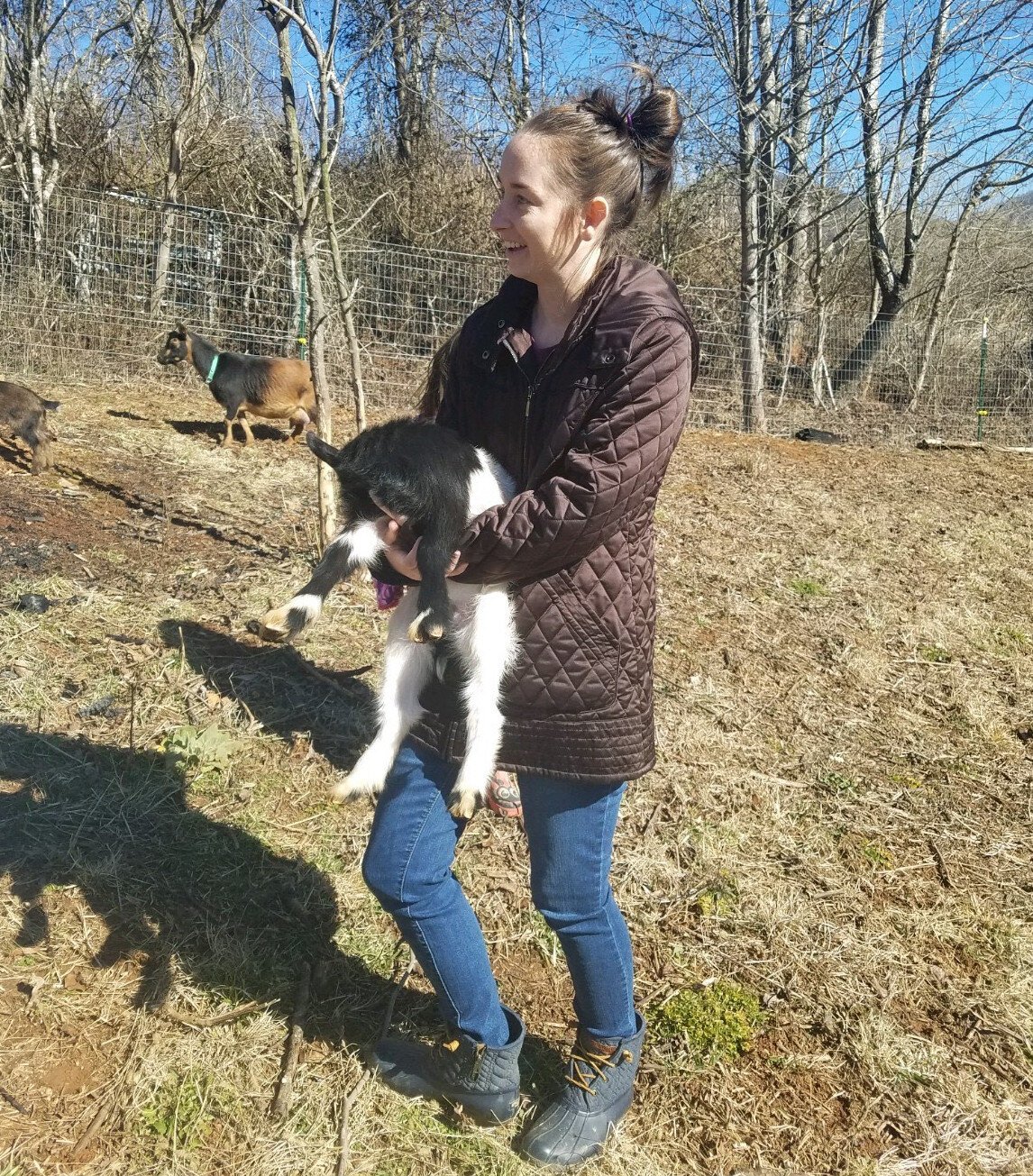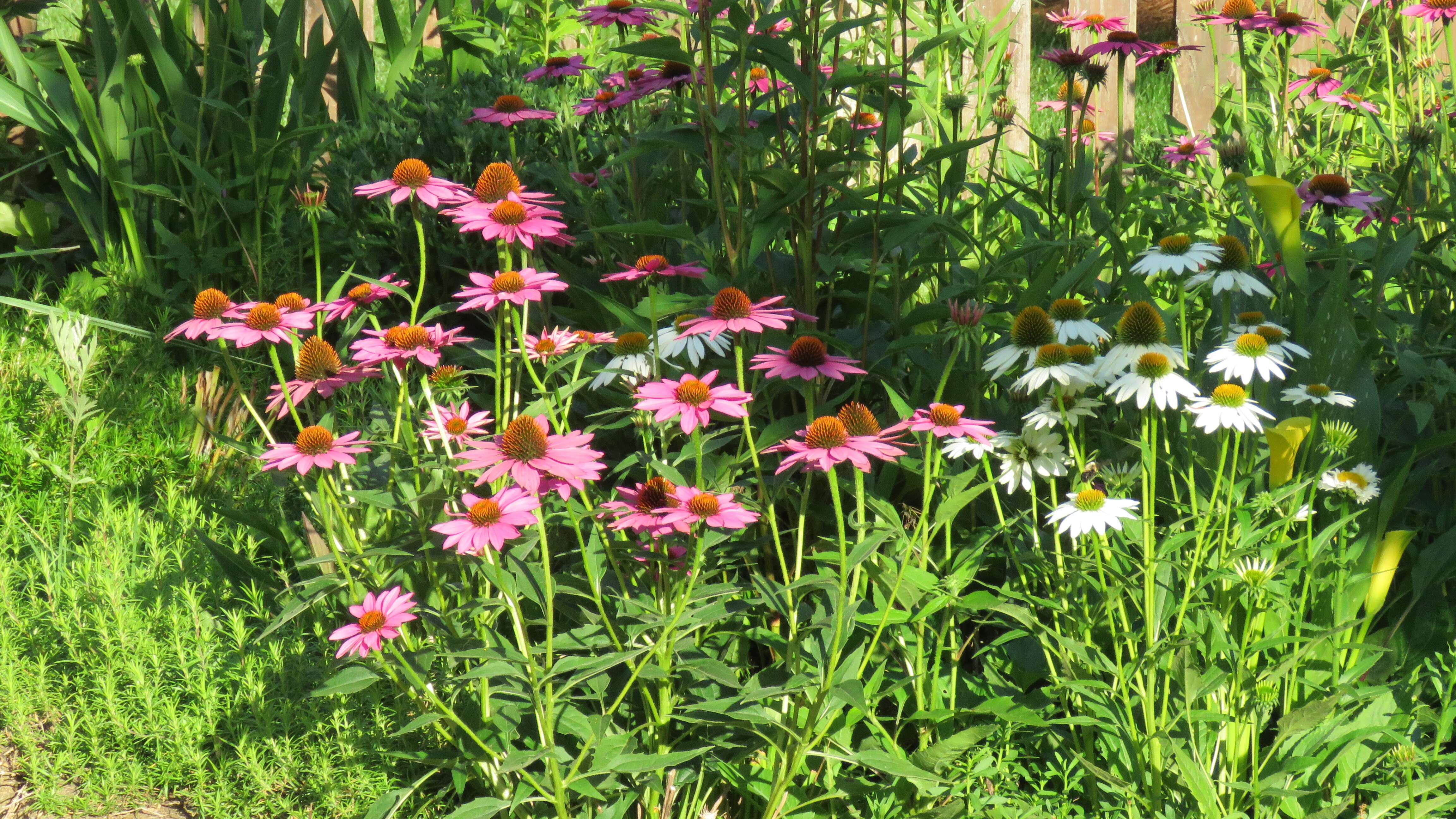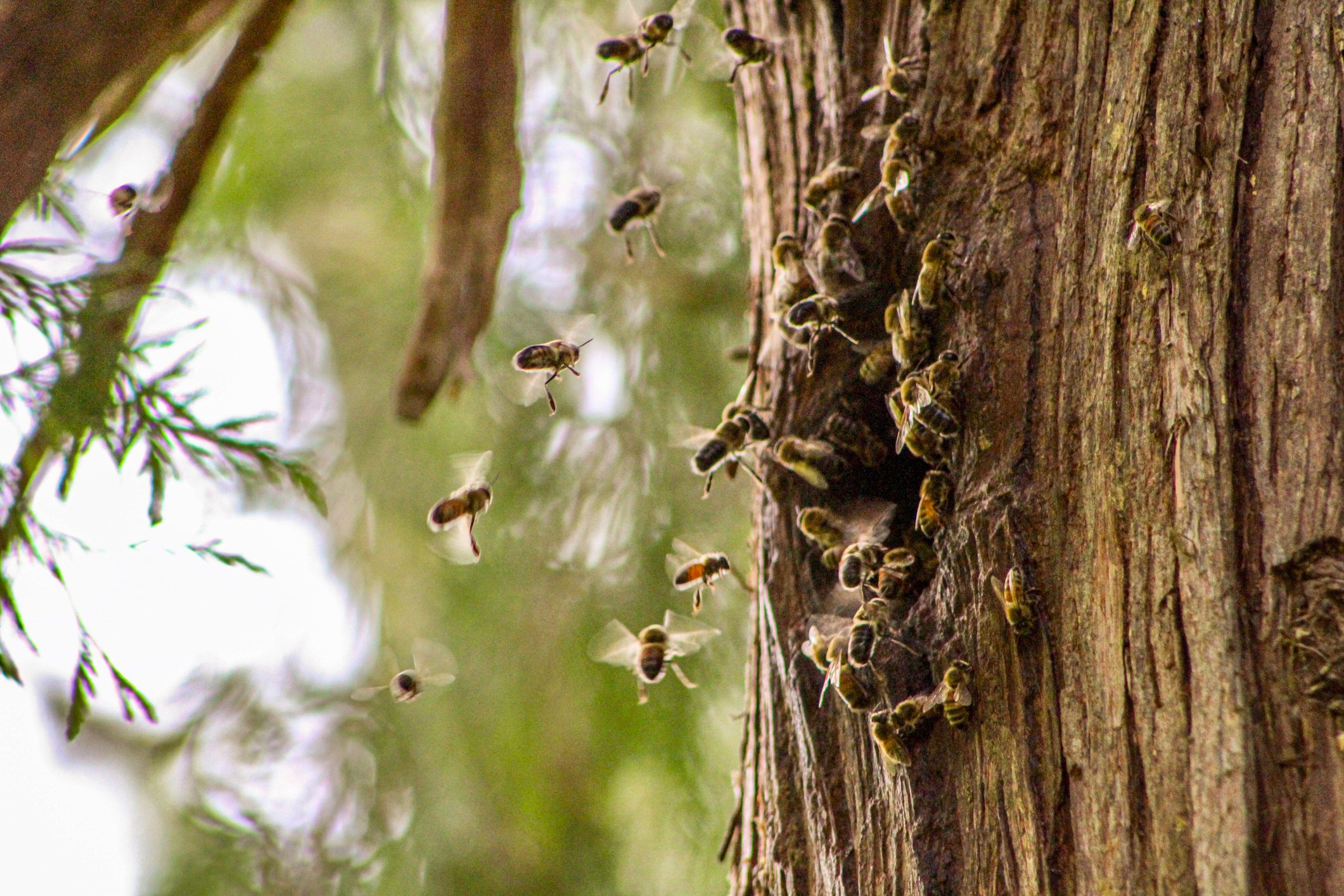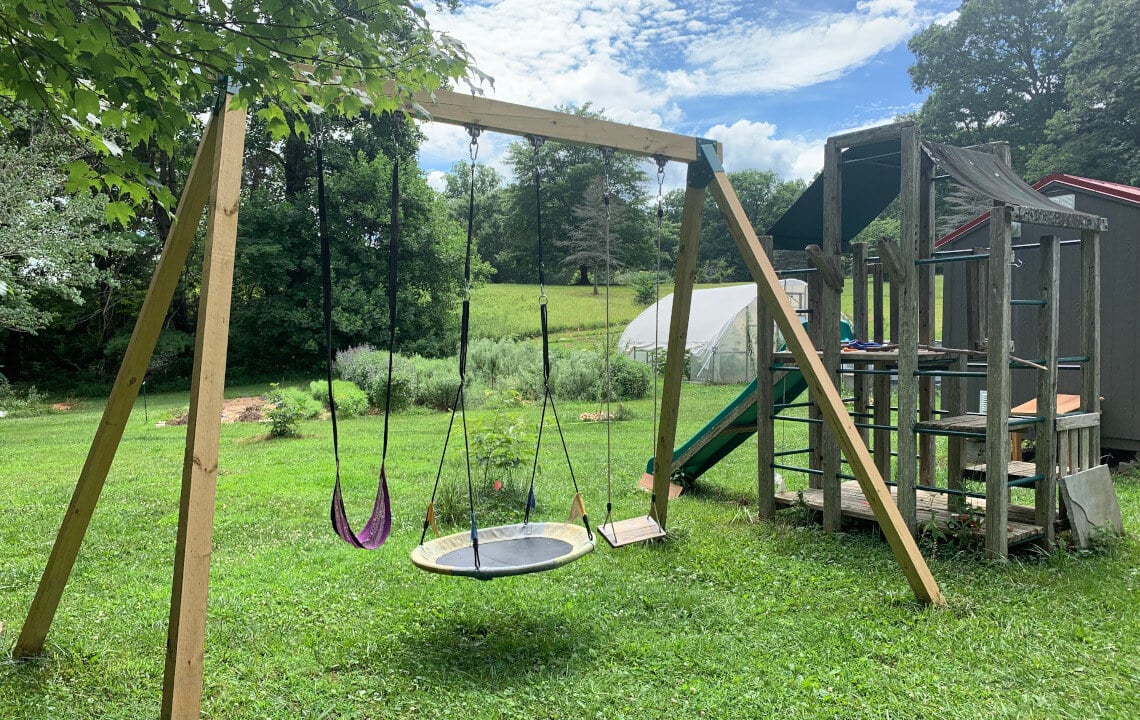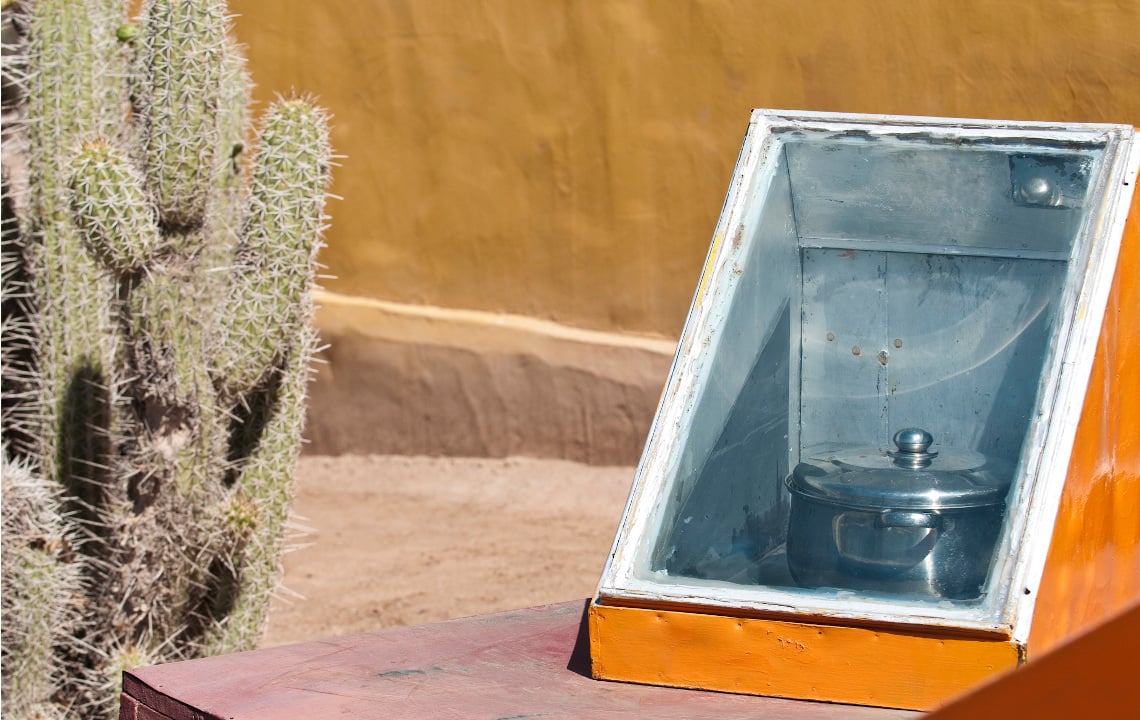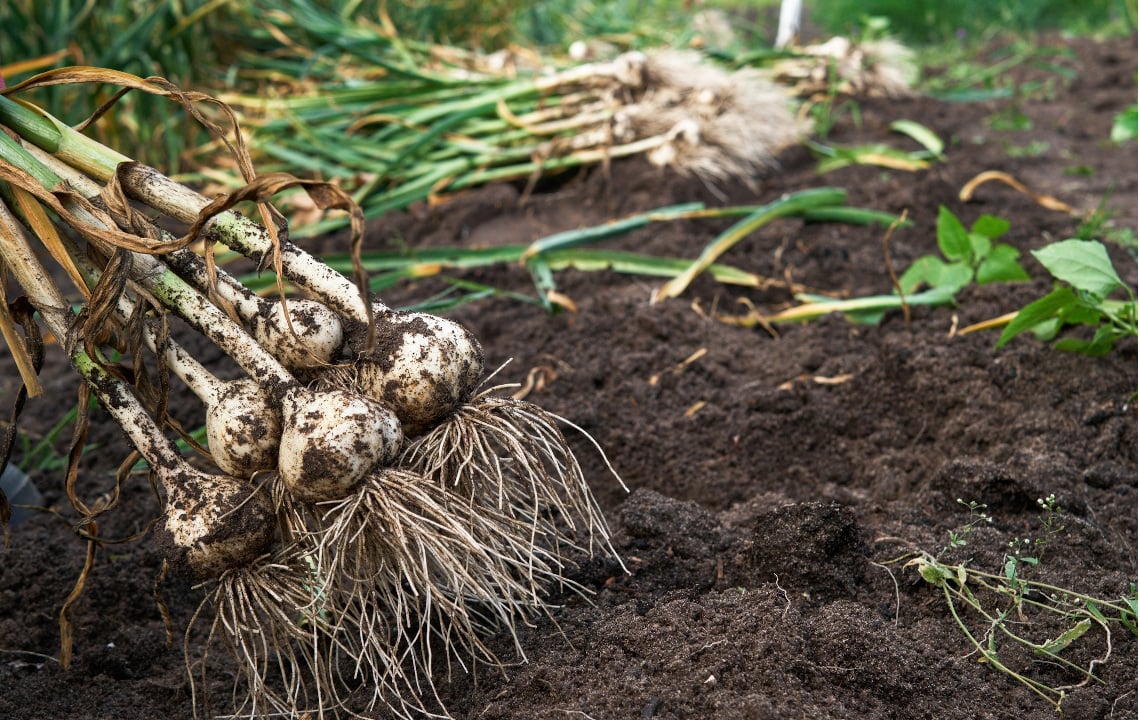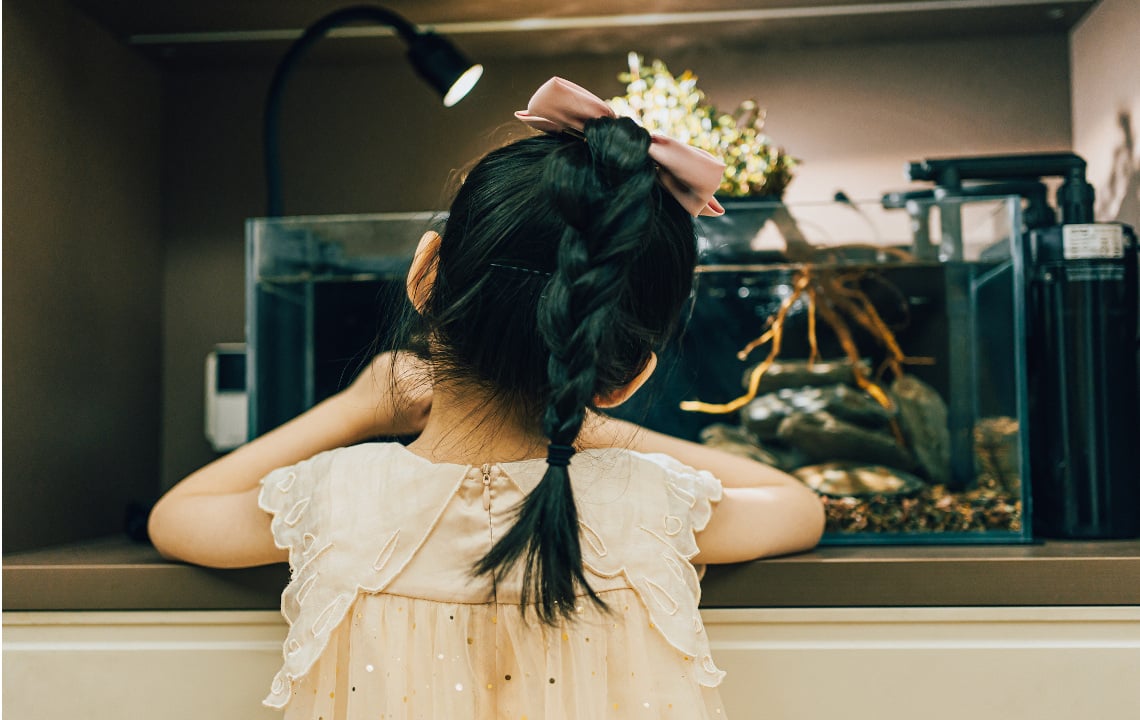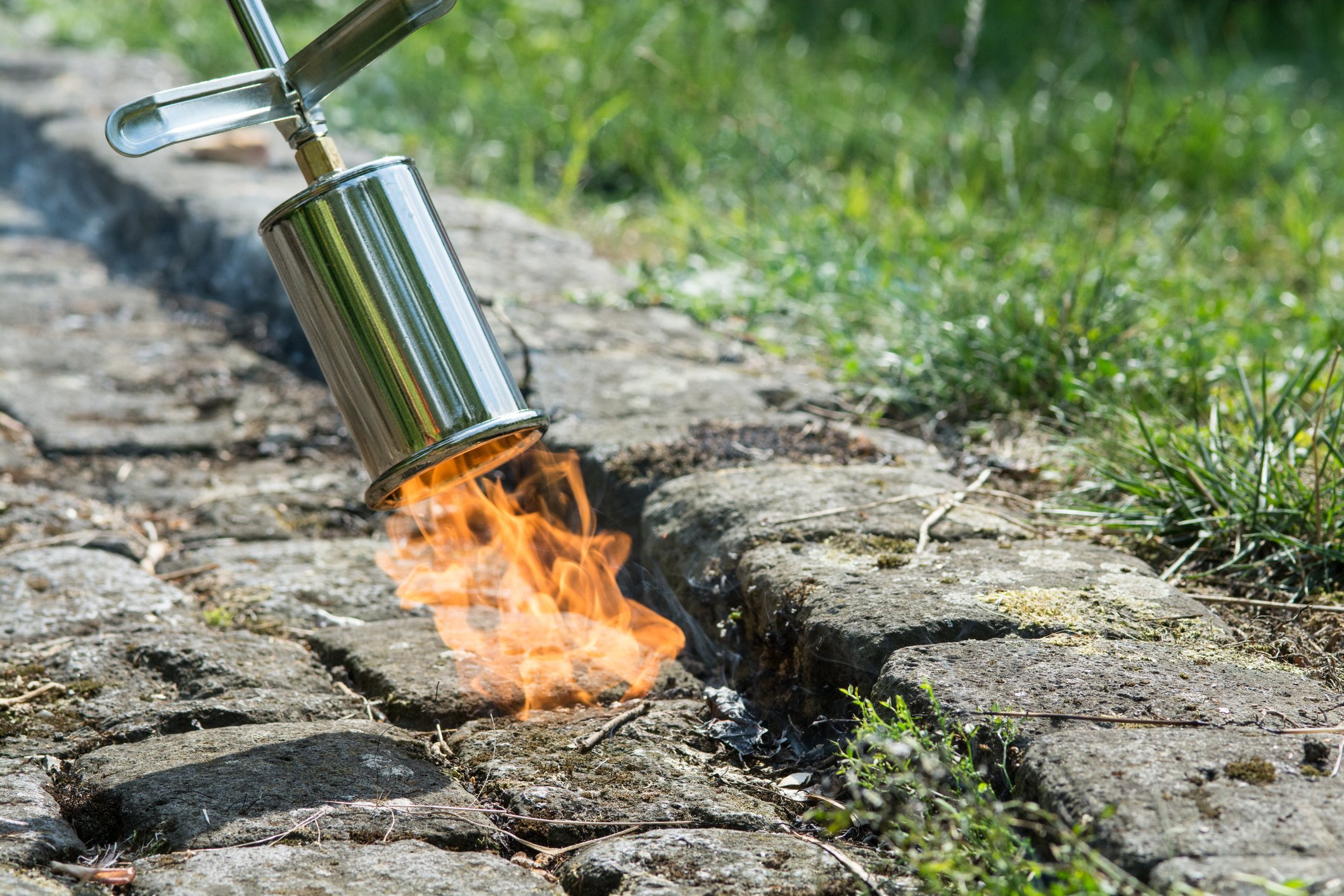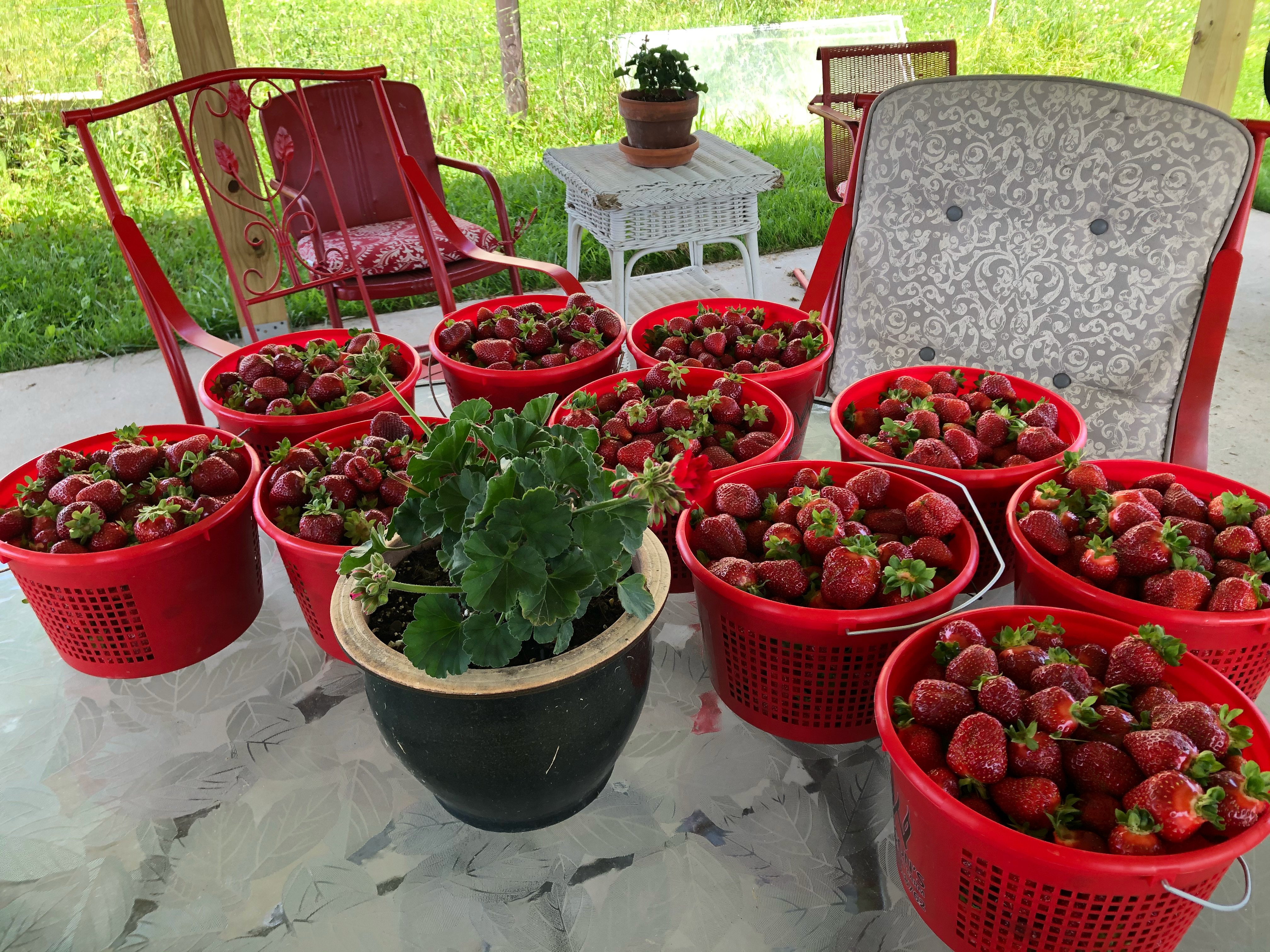One new hunter shares the joys and challenges of her journey of getting started hunting as an adult.
I'm almost embarrassed to admit the fantasies I had before I started hunting.
I was inspired by writers like Michael Pollan and Steven Rinella to create an honest relationship with my food and nature.
I had barely picked up a rifle, but I imagined that within a year or two, I could harvest all of my own organic meat from the woods.
I planned to start with squirrels and soon move on to hunt turkeys and deer in the national forest near my home. My boyfriend (now husband) Evan was trying this out, too, and we thought we might eventually hunt elk and mule deer out west—that would put a lot of red meat in the freezer.
These hunting fantasies were encouraged by the early success I had when I shot my first squirrel on opening day four years ago. It seemed almost too easy, and I thought I might even move on to hunting deer during that same season.
But reality soon set in, and I had to face the challenges of hunting—the complex emotions that come with taking an animal’s life, the steep learning curve involved in building outdoor skills—and I began to question whether I should be hunting at all.
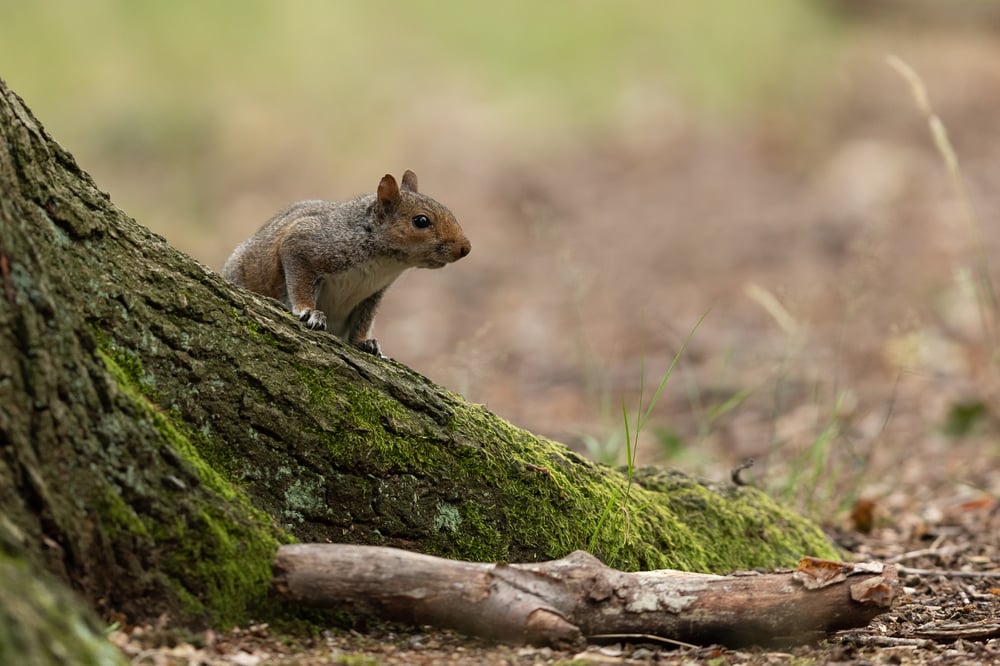
Chasing squirrels
My first squirrel hunt was only a slight deviation from the squirrel hunt of my daydreams.
That morning, Evan and I set off for some fields we had scouted where white and red oaks were dropping acorns around the edges. On the way there, we saw a squirrel run across the forest service road in front of us, but we kept driving because we didn't want to be "road hunters."
We got to the fields and spent hours walking, sitting and listening in and around them. But we never saw another squirrel. We decided to call it quits. "That's why they call it hunting and not killing," we told ourselves. We were satisfied with our efforts but disappointed with the results.
On the way home, though, Evan pointed out the patch of woods we'd seen the squirrel run into that morning. "We could go in and sit down—see if we hear anything?” he said. I reasoned that the squirrel had had a chance to get away, and it felt like a fair chase, so he parked the jeep, and we eased into the woods, sat down and listened.
About twenty minutes later, I was pulling the trigger on my .22 rifle, and a full-bodied gray squirrel was dropping to the ground. I had mixed feelings when I went to retrieve the squirrel, which I could see was a female. I felt sad to see her lying there motionless, and it was weird to pick up her body while it was still so warm. But I was proud to have made a good shot and determined to use the meat well.
The meal we made later was perfect. After brining our squirrel in salt water and apple cider vinegar overnight, we braised the meat for hours in hard cider, reduced the cooking liquid to a glaze and ate it over mashed potatoes topped with a shallot-and-parsley salad.
The delicious rewards of that first squirrel hunt encouraged both of us to keep at it that fall. Evan moved on to deer hunting, and while I tagged along on scouting trips, I wanted to harvest another squirrel or two before I tried hunting big game.
I had no idea that beginner's luck had been at work on that first hunt, though, and that things wouldn't always work out so perfectly.
Getting a Little Lost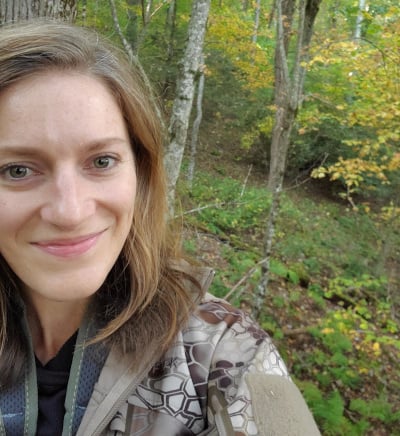
I went out on my own not long after that to a spot we had scouted for deer, where I had seen plenty of white oaks and signs of squirrel activity.
But I was less comfortable out in the woods on my own. I was used to hiking solo but still didn't like being away from well-marked trails. Evan studied outdoor experiential education in school and used to work as a rock climbing guide, so I felt safe wandering off-trail as long as he was leading the way.
I decided to sit down while I was still familiar with my surroundings. I took off my pack, settled against a tree and listened to the woods.
Not ten minutes later, I heard leaves rustling and saw a squirrel scampering down a fallen log twenty yards away. The squirrel paused long enough for me to raise the barrel of my .22 and take what felt like another perfect shot.
Except that this time, the squirrel didn't fall to the ground. Instead, it spun around and started barking and whipping its tail. I thought I must have made a bad shot. I quickly aimed and made another that I hoped was better. But then the squirrel took off, racing down a steep, wooded ravine.
I ran after it, gun in hand. My only thought was that I had to put a kill shot on the wounded animal. It was moving quickly, but a few times, I noticed the squirrel would lose its footing and slide a few feet before regaining control of itself. One time it stumbled, and I was able to take another shot, which sent it running again.
Eventually, the squirrel disappeared behind a tree and stopped moving. I circled the tree and saw it lying on the ground, breathing heavily, its eyes open—looking at me. It blinked a few times, exhaled and then closed its eyes, going limp. I watched it for a few moments and then approached cautiously, nudging it with the end of my gun. It didn't move.
I felt relief at first, but then I was overwhelmed by sadness, guilt and confusion. I didn't know how I'd screwed up the shot so badly. I just wanted to grab the squirrel and get out of there. I scanned the woods but didn't see my pack, which I had left behind when I got up to chase the squirrel.
Why did the woods seem so much darker now? And why did nothing look familiar all of a sudden?
I wish I could say I stayed calm and realized I'd gone a little farther than I thought when chasing the squirrel. But it was cold and getting darker by the minute, and I was completely disoriented.
My headlamp, cell phone and car keys were all in my missing pack. I grabbed the squirrel by the tail and lunged up the ravine, but I went in the wrong direction. I spent the next half hour wandering the head of the ravine until I finally found my pack and made my way out of the woods.
In the post-mortem, Evan and I took turns shooting the .22 and realized the optic was out of alignment. I still don't know whether I bumped it before I took the bad shot or whether it had been slowly shifting out of place. My target practice had been going well, so it's really hard to say what happened.
But regardless of the details, my lack of knowledge and skill about my weapon had likely been the cause of an animal's traumatic death. And I had serious doubts about whether I wanted to keep hunting.
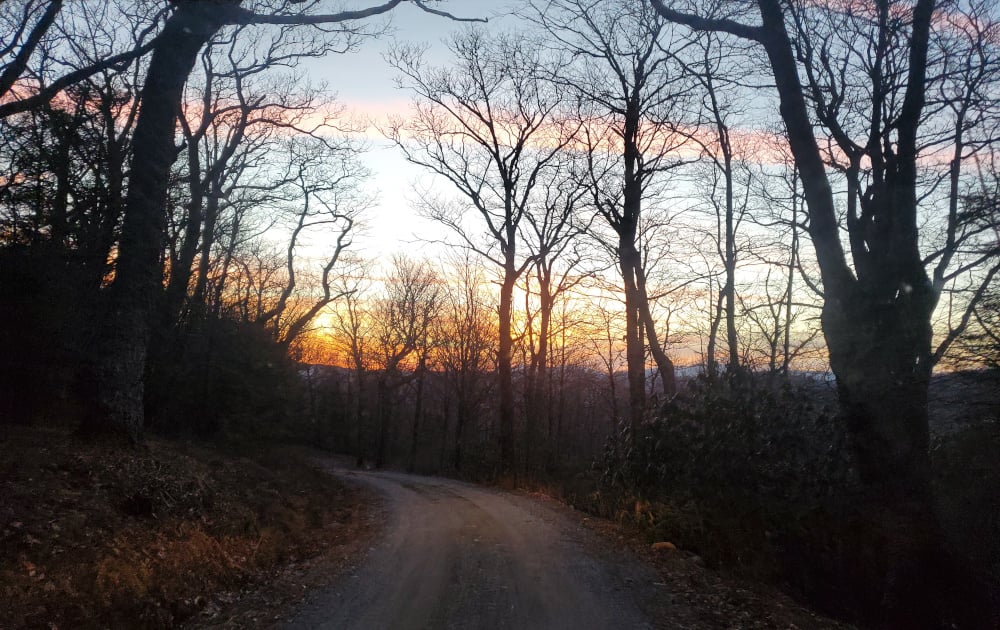
Slowing Down
Meanwhile, Evan had taken to hunting like a duck to water. He harvested three deer that first season. I helped with the butchering process and focused my energy on learning to cook venison. I made glazed backstrap steaks, slow-cooked shanks and garlic-and-herb rubbed roasts. I acquired a taste for deer liver, and I still swear it gives me energy for a week after I eat it.
When March rolled around, Evan was ready for turkey season.
I went to a turkey hunting seminar held by North Carolina’s Wildlife Resources Commission. I scouted and practiced calling. But when it came to hunting, I mostly followed Evan around, wearing camo and toting a borrowed 20-gauge shotgun. I had lost my nerve and my ambition and thought maybe I was better suited to a support role.
We had a few encounters with turkeys that first season, though.
One cold April morning, I managed to call in a gobbler with my box call. He came in fast and got closer than we thought he would. Evan’s shot ended up being a clean miss. But hearing the gobbler calling while he looked for the little hen was a thrill. "I did it!" I thought. "I talked to a wild turkey!"
I started enjoying early starts and sunrises. I liked hearing the whippoorwill's call waking up the woods. I even stumbled onto a patch of morels while turkey hunting and got to taste my first wild mushrooms.
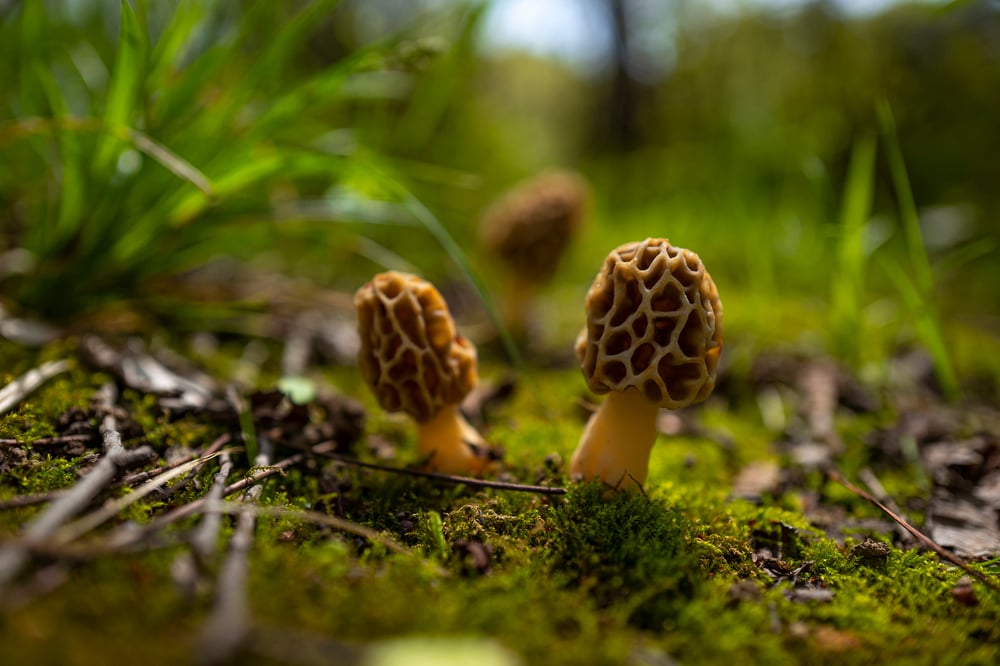
Eventually, the joy of being in the woods, gradually having more wildlife encounters and savoring the treasures of our hunts became more important than racing through my list of game species and filling the freezer.
I didn't need to be a badass. I could just let hunting be a hobby—a way to connect with nature and my partner.
Somehow I accepted that he and I were on different hunting journeys. He had spent much more time in the woods and didn't panic when he took a wrong turn. He was more knowledgeable about his weapons and more comfortable handling and maintaining them. Maybe I just needed to take things slow until I felt more confident.
Small Steps Forward
I was determined to get back to hunting but realized I needed to work on my outdoor skills, so I signed up for an online course that included basic backcountry navigation. I started practicing new skills on solo scouting trips.
On one outing, I happily realized that without taking a hiking trail, I'd managed to get two ridges away from where I'd parked my car.
I was following deer sign, but I was also keeping track of the terrain, the position of the sun and the soundscape. Plus, we had been here before on a successful turkey hunt, and some of the landscape features felt so familiar now—almost like they were etched into my brain from the excitement and gratitude of helping to harvest a wild turkey that day. It was rewarding to improve my abilities, even on a simple scouting trip.
I also gradually learned more about guns and archery equipment which has helped with confidence when taking shots. This is still very much a work in progress, but with a growth mindset, I can accept where I'm at.
I think I have finally let go of my grand dreams and allowed myself to find a new way into hunting.
And it's true what they say: small steps still move us forward.
Two years ago, I finally harvested my first deer. He was a small buck from a patch of national forest not far from my house. He was definitely not magazine cover material. But when my now-husband and I packed up our cooler for my birthday trip last summer, we couldn't have been more excited to be taking Little Buck's backstraps with us for a celebratory dinner at camp that night.
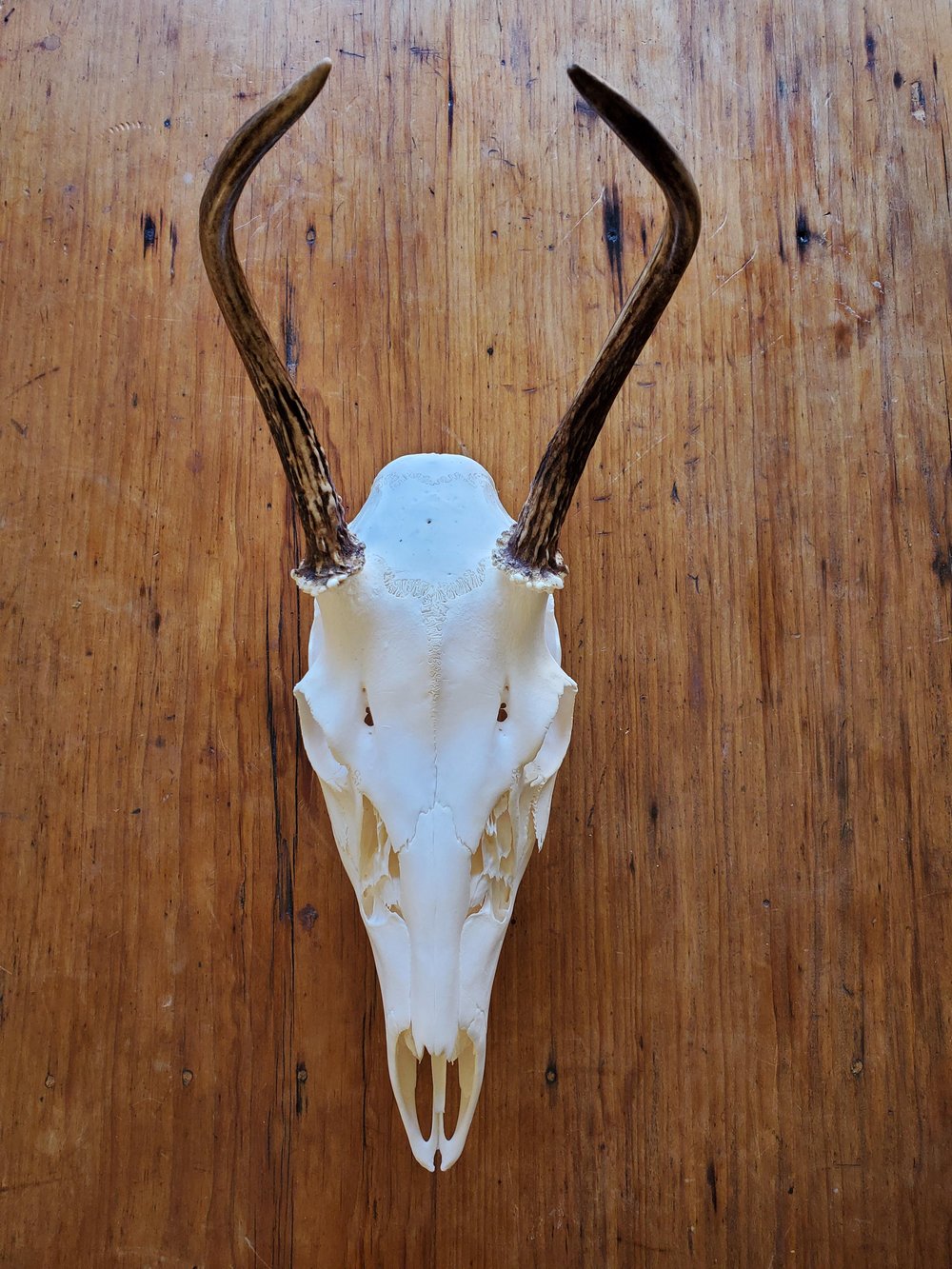
Now, we’re both having more consistent success harvesting animals, and together we’re procuring most of our meat through hunting.
I can’t wait to see what the 2023 season brings, even though I know there will be highs and lows with plenty of lessons to learn along the way.


